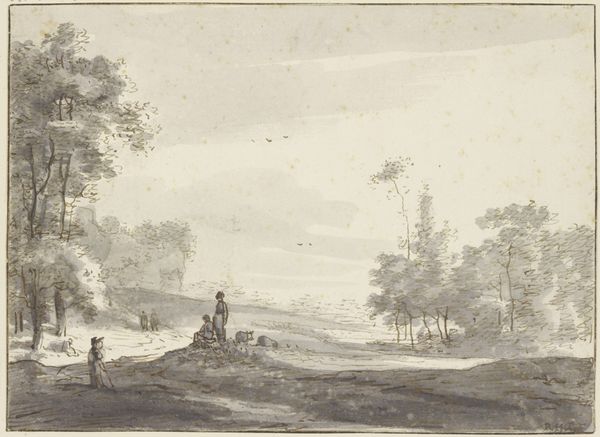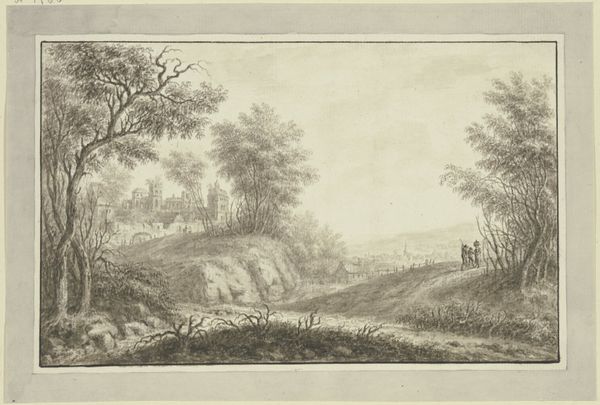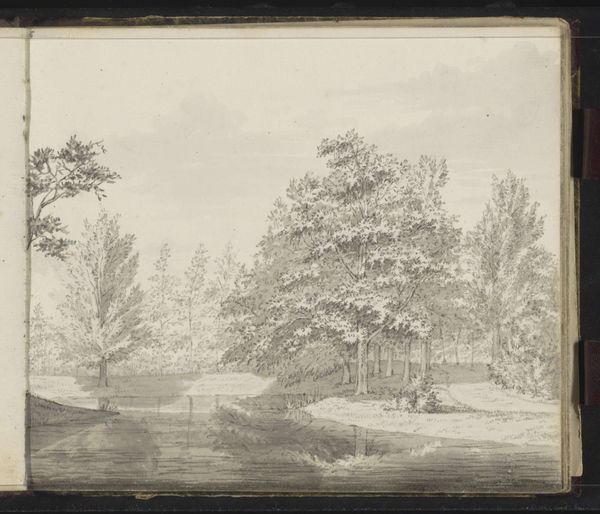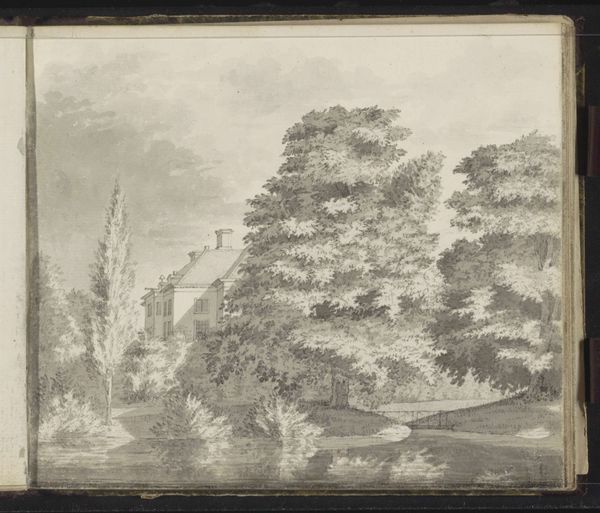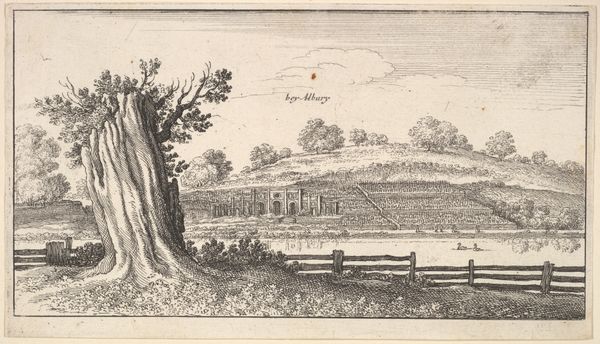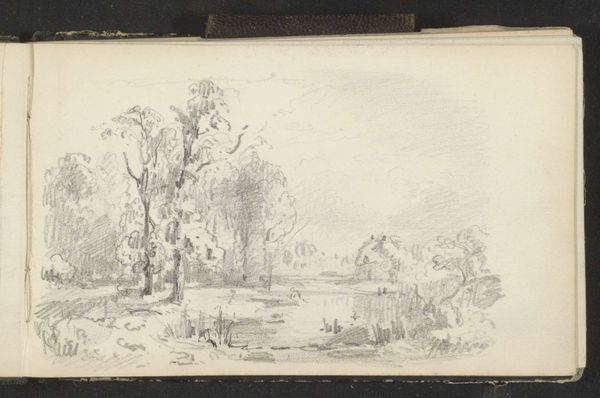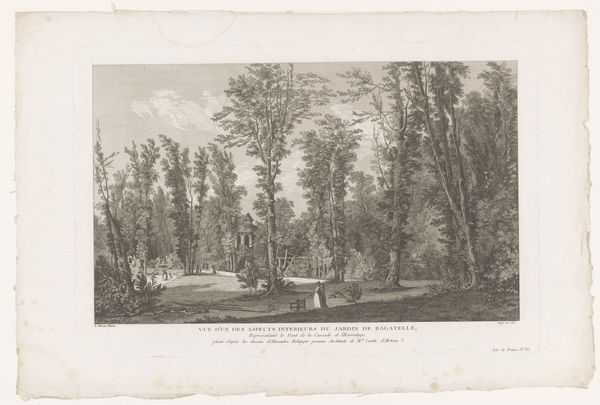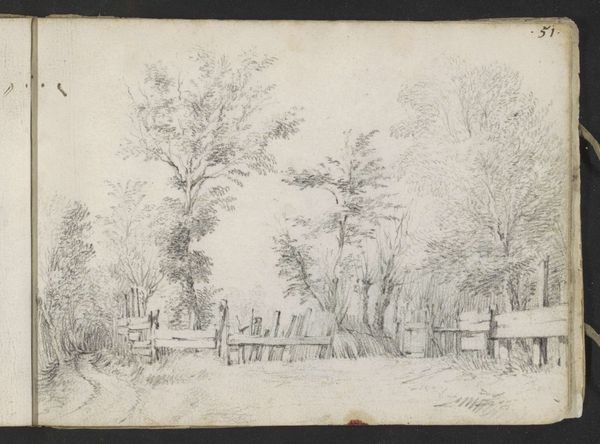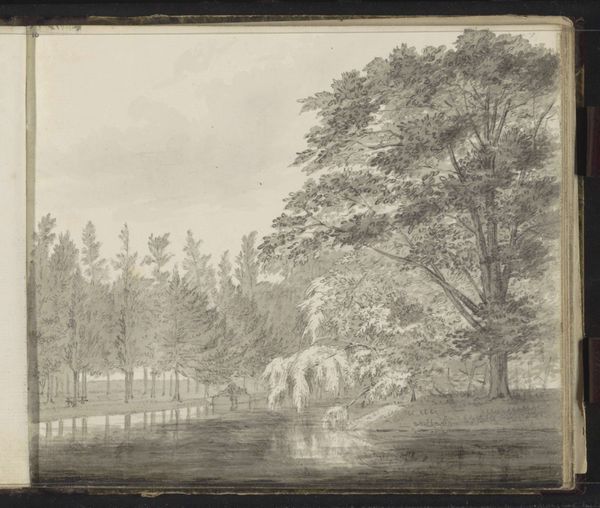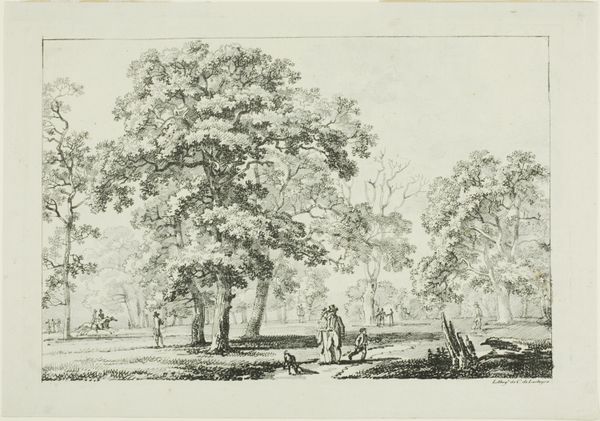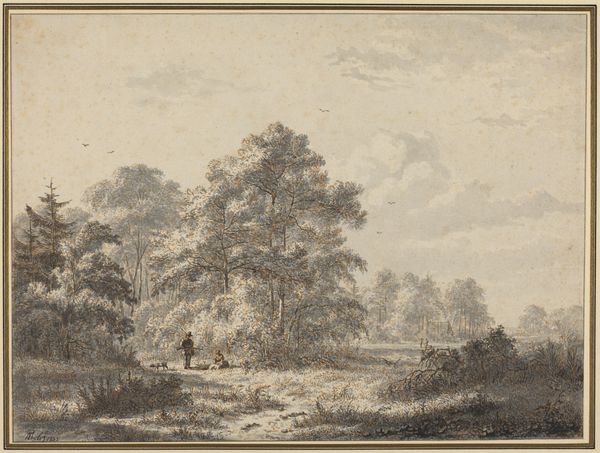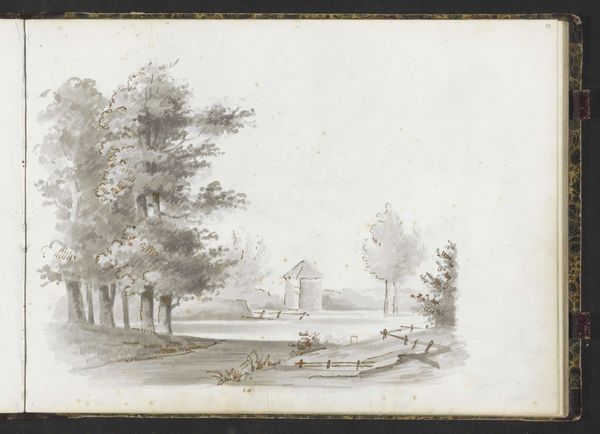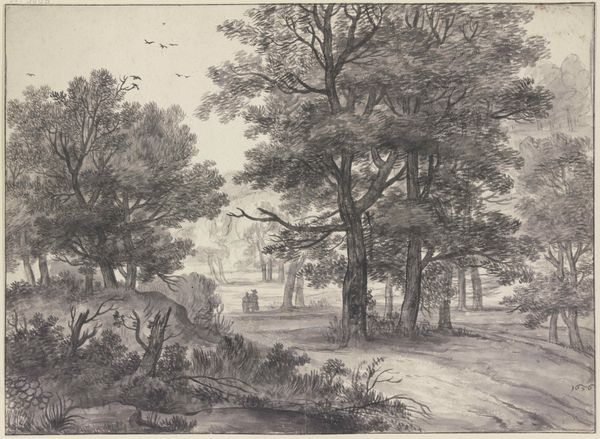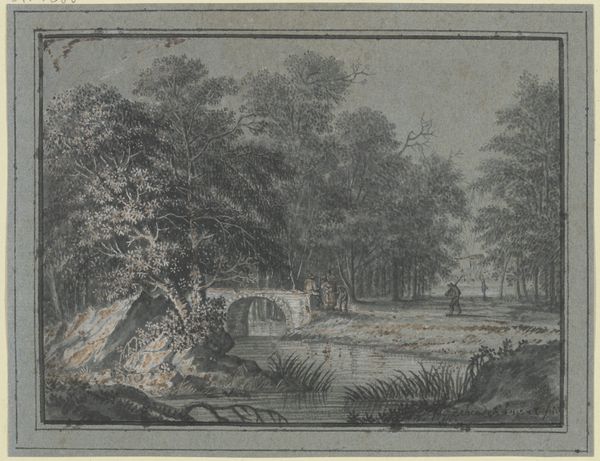
drawing, paper, pencil
#
drawing
#
pencil sketch
#
landscape
#
paper
#
romanticism
#
pencil
#
realism
Copyright: Rijks Museum: Open Domain
Editor: This is "Weide met omheining, water en een poort," a pencil drawing by Hendrik Abraham Klinkhamer, made sometime between 1820 and 1872. It’s quite a simple landscape. I'm curious to know, what stands out to you about the work's context or its creation? Curator: I am intrigued by the materiality here. This isn't a grand oil painting, but a pencil sketch. Consider the accessibility of pencil and paper compared to oils and canvas in the 19th century. This choice democratizes art production, placing landscape drawing within reach of a broader segment of the population. Editor: So, the very material used reflects social access to artmaking? Curator: Precisely. Klinkhamer’s choice of pencil aligns this landscape with practices of field study and documentation. Pencil allows for rapid capture, for an easy engagement with a space. What labor does the making of a fence entail, for example? Consider too how the sketch exists inside the bounded context of the book from which it came – is it a commodity made for display or part of an archive of impressions? Editor: That makes me think about how fences themselves define the use of land, its resources. Curator: Indeed. The act of enclosing also relates to control, property, and even modes of extraction. Can we view the trees themselves as potential material, commodities? And think, too, about the production of the paper itself. Where might this sketch fit into debates about the pastoral versus industry? Editor: It's amazing how such a simple sketch can lead us to consider the means of its creation, social structure, and land usage all at once! Thanks! Curator: My pleasure. Viewing art through the lens of materiality opens doors to a deeper understanding of the socio-economic forces that shape artistic expression.
Comments
No comments
Be the first to comment and join the conversation on the ultimate creative platform.
